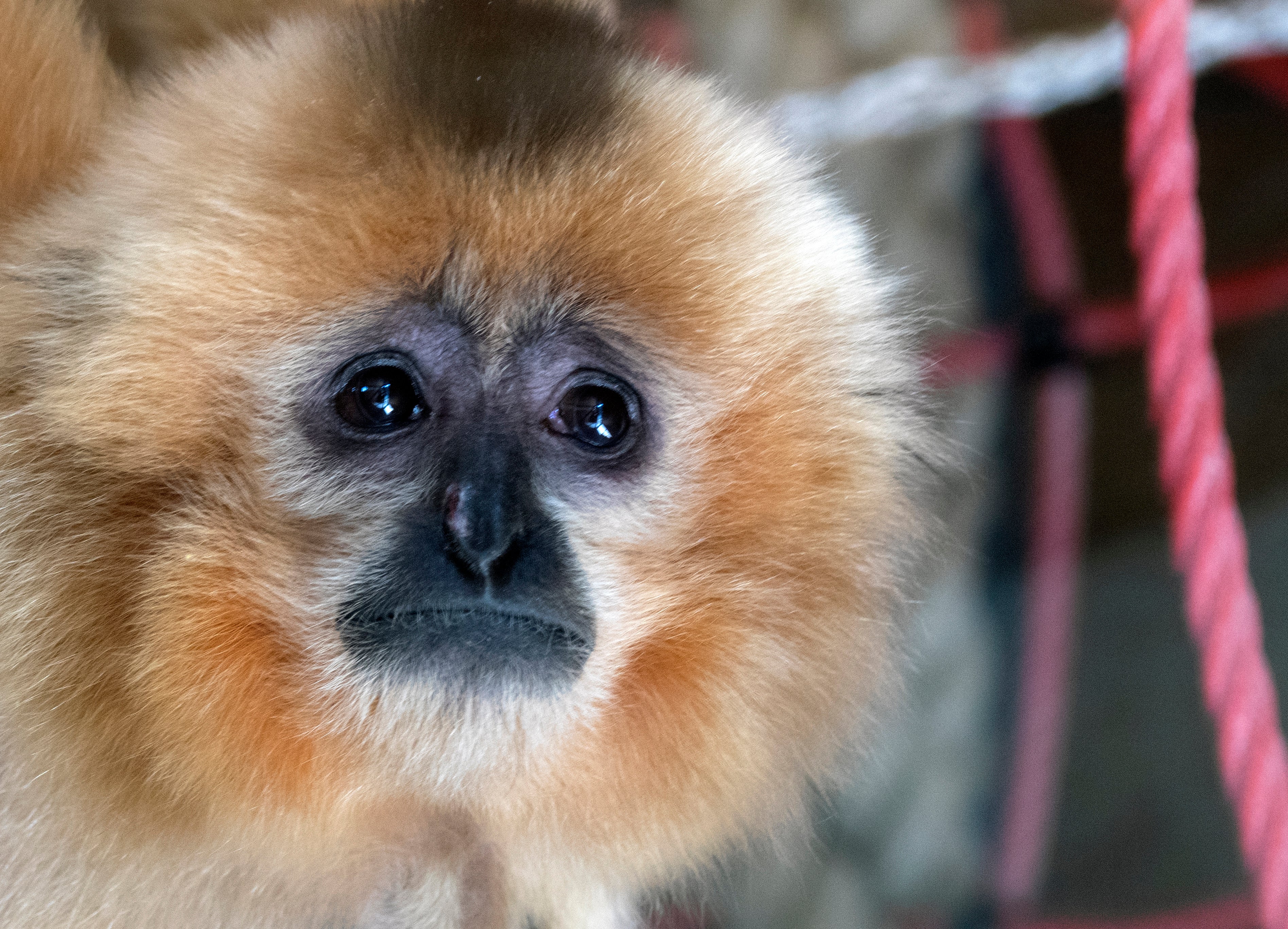Pair of endangered gibbons finds a new home in Sarajevo zoo
The Sarajevo zoo has welcomed two new residents, a pair of golden-cheeked gibbons, joining the family of European menageries that are trying to save the endangered small apes from extinction

Your support helps us to tell the story
From reproductive rights to climate change to Big Tech, The Independent is on the ground when the story is developing. Whether it's investigating the financials of Elon Musk's pro-Trump PAC or producing our latest documentary, 'The A Word', which shines a light on the American women fighting for reproductive rights, we know how important it is to parse out the facts from the messaging.
At such a critical moment in US history, we need reporters on the ground. Your donation allows us to keep sending journalists to speak to both sides of the story.
The Independent is trusted by Americans across the entire political spectrum. And unlike many other quality news outlets, we choose not to lock Americans out of our reporting and analysis with paywalls. We believe quality journalism should be available to everyone, paid for by those who can afford it.
Your support makes all the difference.The Sarajevo zoo on Monday welcomed its first pair of golden-cheeked gibbons joining the family of European menageries that are trying to save the endangered small apes from extinction.
After arriving in Sarajevo from Slovenia, the pair — a male and a female — were placed under quarantine and are expected to make their public debut in mid-March.
“We’ve been preparing for their arrival for nearly a year, having started the construction of their habitat last March,” said Aldijana Hamza, the Sarajevo zoo’s spokeswoman.
Their enclosure has been built on an island in the center of a small artificial lake and once they are allowed outside only water will separate them from visitors, Hamza explained.
The gibbons arrival was a turning point for the Sarajevo zoo, established more than 65 years ago.
“It can be considered a major success for this small zoo to have become a part of the major global and European initiative to preserve these endangered animals,” said Vedad Skapur, a lecturer at the Veterinary Faculty of the Sarajevo University.
The smallest of the apes, gibbons used to be widespread across much of Asia, but their numbers have been greatly reduced due to deforestation, hunting and illegal trade, landing them on the list of endangered animal species.